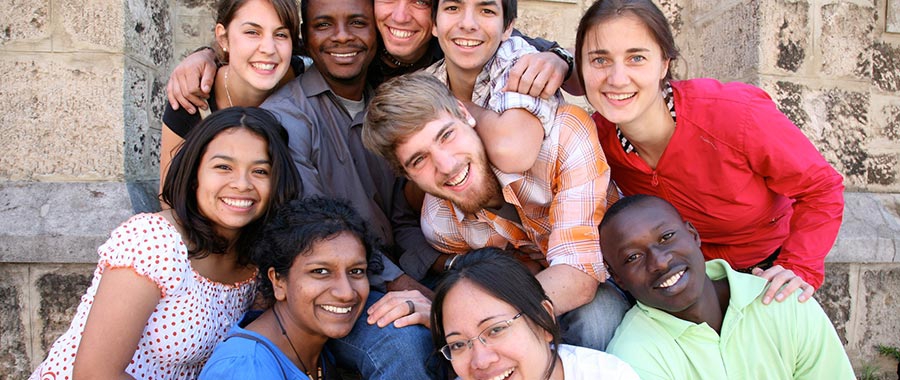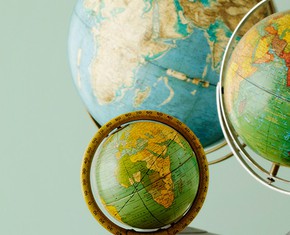The views expressed in our content reflect individual perspectives and do not represent the authoritative views of the Baha'i Faith.
What defines a good community, a good society? If you had your choice, what kind of society would you like to live and raise your children in?
Lots of modern thinkers, especially those from the developed world, would argue that the most advanced human societies are governed by so-called “liberal democracies.” A liberal democracy—defined as a government with a constitution, separation of powers, free elections and universal suffrage—attempts to provide rule by the people. Reviewing the history of human society and its development, you can see why people might reach that conclusion—because those kinds of societies have given their citizens the highest material standards of living in human history.
That all began with the classical liberalism of the Enlightenment, when cultural and intellectual forces in Western Europe began to emphasize science, democratic rule, reason, and individualism, rather than traditional authority from tyrannical dictators, kings or ecclesiastical rulers. The resulting democratic cultures developed as a reaction to thousands of years of repressive and authoritarian governments, dogmatic belief systems and rigidly-defined feudal social structures. During the period of the Enlightenment, authoritarian rule and an inflexible class system gradually gave way to liberal, citizen-ruled societies in many nations, and their influence began to spread around the world. That influential multi-century trend still plays itself out today among oppressive societies whose people continue to demand freedom and justice.
But along with the benefits of greater individual freedom, the world has paid a high price for that massive social change.
The Baha’i teachings point out that the rigid system of competing national sovereignties we developed during the Enlightenment led to brutal colonialism, massive and nearly constant warfare, and harsh economic exploitation, including slavery. Those new societies also resulted in a breakdown of social bonds between the individual and the community, widespread alienation from any universally-held value system, and a growing sense of estrangement, anomie and social isolation.
Which begs the question: do liberal, free-market national democracies and republics make the best possible cultures? Does the resulting community of nations, and the anarchy inherent in our current system of state sovereignty, prevent us from having a peaceful global community, and doom us to a life of constant war or preparation for war? Does the world face a future where sovereign nations inevitably and forever exist in conflict with other nations? Or does a realistic vision exist somewhere for a broader, less selfish, more advanced, more universal, more humane society—for a new world order?
Baha’is believe the writings of Baha’u’llah answer those critical questions:
The world’s equilibrium hath been upset through the vibrating influence of this most great, this new World Order. Mankind’s ordered life hath been revolutionized through the agency of this unique, this wondrous System—the like of which mortal eyes have never witnessed. – Baha’u’llah, Gleanings from the Writings of Baha’u’llah, p. 136.
The essence of Baha’u’llah’s World Order is the unity of the human race. ’O ye children of men’, He writes, ’the fundamental purpose animating the Faith of God and His Religion is to safeguard the interests and promote the unity of the human race…’ And He warns, ’The well-being of mankind, its peace and security, are unattainable unless and until its unity is firmly established.’ The achievement of this unity is Baha’u’llah’s declared mission and the aim of all Baha’i activity. – The Universal House of Justice, The Proclamation of Baha’u’llah, p. ix.
The Baha’i Faith doesn’t just focus on the inner life of humanity, like some traditional religions. The Baha’i teachings also focus, sharply and clearly, on our outer community life—on the future of human society and civilization as a whole. Baha’is believe that we have reached a stage in our evolution that demands and requires global unity; that the era of nation-building has come to its natural end; and that the period of human history which will usher in a new, unified world order has begun:
The long ages of infancy and childhood, through which the human race had to pass, have receded into the background. Humanity is now experiencing the commotions invariably associated with the most turbulent stage of its evolution, the stage of adolescence, when the impetuosity of youth and its vehemence reach their climax, and must gradually be superseded by the calmness, the wisdom, and the maturity that characterize the stage of manhood. Then will the human race reach that stature of ripeness which will enable it to acquire all the powers and capacities upon which its ultimate development must depend.
Unification of the whole of mankind is the hall mark of the stage which human society is now approaching. Unity of family, of tribe, of city-state, and nation have been successively attempted and fully established. World unity is the goal towards which a harassed humanity is striving. Nation-building has come to an end. The anarchy inherent in state sovereignty is moving towards a climax. A world, growing to maturity, must abandon this fetish, recognize the oneness and wholeness of human relationships, and establish once for all the machinery that can best incarnate this fundamental principle of its life. – Shoghi Effendi, The World Order of Baha’u’llah, pp. 202-203.
“Humanity is now experiencing … the stage of adolescence …,” the Guardian of the Baha’i Faith wrote. When you think about the state of the world today, with its tremendous upheaval, rapid change and obvious chaos, doesn’t that seem like an apt comparison? We are now moving through the teenaged stage of our collective development, the Baha’i teachings say—so we should expect the eruptions of growth, turbulence and confusion we see all around us.
In the midst of all that, the central Baha’i call—to “recognize the oneness and wholeness of human relationships”—asks us to work together to bring into being a new world community which no longer separates itself by the old divisions of race, gender, nationality or class. It asks us to extend that community around the globe, to every human being. It asks us to create a social system that values the rights and privileges of every individual. It asks humanity to cease its conflicts, wars and violence. It asks us all to become citizens of the world.
















Comments
Sign in or create an account
Continue with Googleor